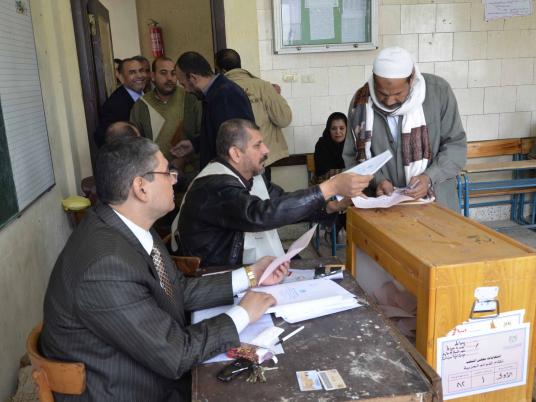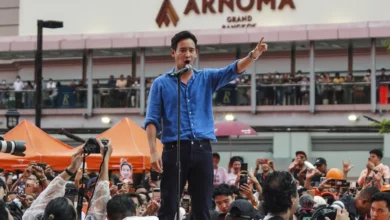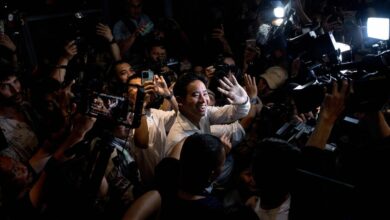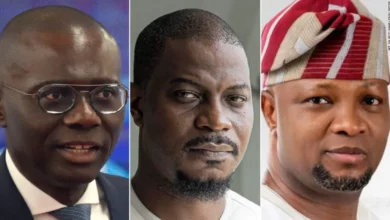
Egypt’s first post-25 January elections were supposed to be a celebratory milestone on the long road to democracy. But after nearly 10 months of military rule, it seems that many Egyptians are viewing voting as a necessary (and potentially dangerous) evil.
Many worry that holding elections under the current conditions, after nearly a week of violence between protesters and Ministry of Interior forces, will lead to another outbreak of violence. Many also worry the election will result in another corrupt parliament.
Still, most Egyptians are saying they plan to vote, believing that boycotting or postponing the elections could lead to even greater chaos.
“I’m not happy that we’ve been forced to have the elections in these circumstances and I join those who are worried about… but boycotting the elections will only make its results worse,” Ahmed al-Esseily, a television presenter, wrote on Twitter.
Many also expect that paid thugs, formerly used by Mubarak to intimidate voters, could make a comeback, turning the elections into a bloodbath.
“Attacks and gunfire used to take place during previous elections, even with the presence of police,” said Ahmed Fahmy, a 36-year-old contractor in Old Cairo. “Imagine now what will happen with the current lack of security and the expansion of the electoral district.”
Fahmy, like many voters Al-Masry Al-Youm talked to in Old Cairo, said he still plans to vote.
“We’re having the first stage of the elections, which could also be the last,” says political science professor Awad al-Shabah, who is concerned that violence in polling stations on Monday and Tuesday could lead to the cancellation of the election’s remaining two stages.
Mohamed Ali, a 31-year-old grocery store owner in Old Cairo agrees with Shabah’s prediction. “I have a strong feeling that elections won’t pass peacefully. They’ll be cancelled; the army will announce the highest state of emergency and enforce martial law. Then they’ll make a referendum to rule the country for the next five years,” said Ali.
Skepticism still surrounds the ruling military council’s intentions and the byzantine laws governing the election process.
Many of the protesters in Tahrir Square will boycott the elections in order not to give it legitimacy. Mohamed al-Badry, a chemist who is taking part in the Tahrir sit-in, says that after the brutality he saw being used against protesters last week, instead of casting his vote, he will write on the ballot “the people want to prosecute the military.”
Activists and politicians expressed concerns that use of the single-winner system for one-third of parliamentary seats will revive abuses of past elections, including patronage networks and vote buying.
The creation of large districts may also make it difficult for newcomers to compete with experienced remnants of Mubarak’s regime.
A delay in issuing a law to keep the latter from running in elections has led to their widespread presence in the electoral race. That has discouraged a lot of people, who believe that the upcoming parliament will be similar to the old ones they witnessed under Mubarak.
“I’ll choose the best candidate… but I know that he will still not be worthy of it,” says Rana Mehana, a college graduate.
Despite these concerns, the majority still believes that holding the elections is necessary to end the current crisis.
“I don’t know any of the candidates, but we have to vote, because what’s happening in the country is unbearable. We need to have an institution to go to,” says Ahmed Shaaban. A 24- year-old quality assurance worker, reflecting the confusion many Egyptians face due to the large number of candidates and an electoral system mixing the single-winner and list-based systems.
“I don’t understand how I’ll vote on the list. What if I don’t like one of the candidates on the list? Do all the candidates on the list get seats if the list wins? I don’t know how many seats our constituency should get,” said Ali, the grocery store owner, referring to the mixed election system in which voters will simultaneously vote for lists and candidates in two separate but overlapping constituencies.
Despite complications and skepticism surrounding the electoral process, some value its significance as the first free election following the 25 January revolution.
"Before, I couldn't care less about the elections, but now I feel that a lot has changed,” said Shadi Abdel Rahman, a recent commerce faculty graduate. “I feel that when I cast my vote it will really make a difference."
Rana Khazbak contributed reporting.




